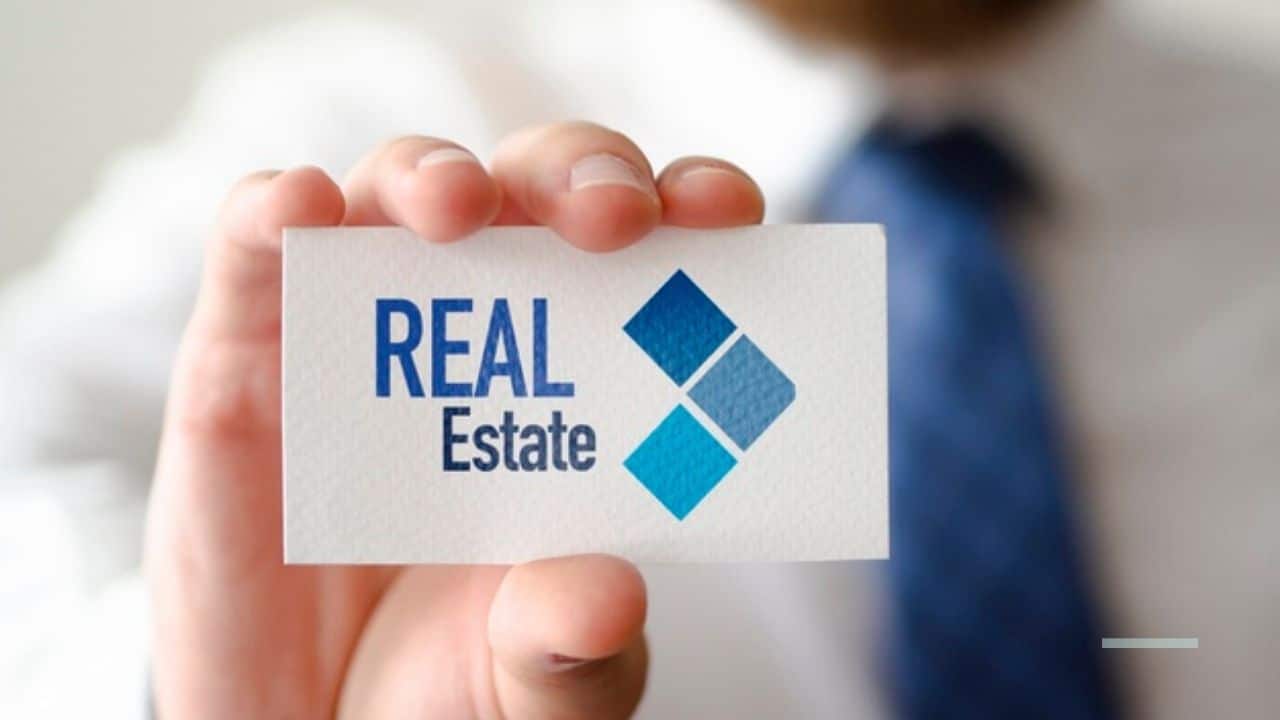When it comes to mortgages, the terms “escrow” and “escrow accounts” refer to two distinct notions. Escrow is a process in which a neutral third party mediates a real estate transaction by holding money and property “in escrow” until both parties agree that all of the requirements for the sale to close have been met. An escrow account payment, on the other hand, is typically used to manage a mortgage borrower’s annual tax and insurance costs. This article will further explain all you need to know about paying escrow on a mortgage account statement.
What Does Escrow Mean?
Escrow is a third-party service that is frequently required in the acquisition of a residence. When a buyer and seller first come to an agreement, they choose an escrow agent who is a neutral third party. The buyer’s “earnest money,” or a deposit equal to a tiny fraction of the sale price, is by the escrow agent. The seller agrees to remove the property from the market in exchange. Both the buyer’s deposit and the seller’s property are said to be in escrow until the final exchange is accomplished.
Escrow “accounts” have less to do with the initial property purchase and more to do with your monthly mortgage payment statement. You’ll normally be an escrow account when you borrow money from a bank or a direct mortgage lender. The lender will deposit the portion of your monthly mortgage payment that includes taxes and insurance charges into this account. The escrow account decreases the possibility of you falling behind on your responsibilities to the government or your insurance provider by collecting a portion of those annual fees each month.
Types of Escrow
The following are major types of escrow.
#1. Escrow and Real Estate
Real estate deals can use escrow accounts. The buyer can undertake due diligence on a potential transaction by putting the funds in escrow. Escrow accounts also provide assurance to the seller that the buyer will be able to complete the transaction. An escrow account, for example, can be for the selling of a home. The buyer and seller may agree to employ escrow if the sale is subject to conditions, such as passing an inspection.
In this situation, the property buyer places the down payment on the house in an escrow account with a third party. The seller may proceed with the house inspections knowing that the funds are there and that the buyer is able to pay. Once all of the criteria for the transaction have been met, the money in escrow is the seller’s own.
Escrow also refers to an escrow account established at the time of a paying mortgage settlement. The escrow account is to hold future payments for homeowners insurance and property taxes. To cover these costs, a portion of the monthly mortgage payment is into escrow on the mortgage account statement. As a result, mortgagees who set up an escrow account (which the lender may mandate) will have greater payments than those who do not; but, they will not have to worry about paying yearly premiums or property tax bills because they are already paying it monthly into their escrow account.
#2. Escrow and the Stock Market
While the shareholder is the true owner of the stock in this situation. The shareholder has limited powers when it comes to selling the shares. Executives who receive stock as a bonus to their income, for example, must often wait for an escrow period to expire before selling the shares. Stock bonuses are a strategy to keep top executives on board.
#3. Escrow and Online Sales
Like real estate and stock market escrow, online escrow protects buyers and sellers from fraud and nonpayment. For online goods sales, an internet platform serves as a middleman. The purchasers send funds to an escrow provider, such as escrow.com, which holds the funds.
An online escrow service will release payments to the seller once the merchandise has been delivered and validated. Escrow services are rarely employed; but, when they are, they are usually reserved for high-value assets like jewels or art. For the service, the online escrow company charges a fee.
How Do Escrow Accounts Work?
When you get a mortgage loan from a bank or a direct lender, you get an escrow account payment statement that helps you keep track of your property taxes and homeowner’s insurance premiums. Despite the fact that these charges your lender will need you to pay a monthly portion of each cost and deposit the remainder in your escrow account.
Borrower escrow accounts are by paying mortgage lenders to reduce the risk of you defaulting on your financial commitments as a homeowner. Unpaid taxes or insurance can result in liens in foreclosure. Making it more difficult for the mortgage lender to recover the initial debt. This provides lenders with a strong incentive to keep their borrowers on track by setting up paying escrow to cover the non-mortgage costs of homeownership.
Although escrow accounts make it easy for lenders to pay taxes and insurance fees on your behalf, they do offer some disadvantages for borrowers. To defend against any unforeseen cost rises, lenders frequently ask you to maintain a minimum level in your escrow account. The standard guideline is that your mortgage escrow account must hold at least two months’ worth of expenses. However, the maximum might be higher for riskier mortgages. Once a year, lenders will examine your escrow account to ensure that the estimated payments are keeping up with costs.
Should You Use an Escrow Account?
To begin, you might not be able to avoid opening an escrow account, depending on the circumstances of the loan you have. If your down payment is smaller than the customary 20% for a mortgage from a private bank or lender, you may sometimes require an escrow account as is mortgage insurance. Even if you want to, you might not be able to choose the terms of a federally backed loan. VA loans don’t need escrow accounts, but FHA and USDA loans do.
Let’s pretend you actually are free to decide. Escrow accounts can be useful for a number of reasons: Making your mortgage, property tax, and insurance payments all at once might be a convenient way to save time and money in the long run. Despite the increased monthly mortgage payment, think about what it would take to make those payments on your own many times a year: You’ll need to be disciplined about setting aside the money, with some extra in case premiums or taxes go up unexpectedly, and then about making the payments on time.
Who Controls the Escrow Account?
Earnest money is usually held in escrow by a title company or bank during the home-buying process.
After you get the mortgage, the escrow account is usually handled by the lender. A portion of your monthly mortgage payment will be put aside by your lender. This is basically what the lender will be using to pay your yearly property tax and insurance premiums.
The lender may or may not handle the escrow account as they see fit. Any reliable third party that volunteers to handle the account’s management is welcome to do so. Most mortgage servicers do not permit account holders to manage or withdraw money from their escrow accounts directly.
The Benefits of an Escrow Escrow on Mortgage Account Payment
The most important advantage of having a rocket mortgage escrow account is that it protects you during a real estate transaction, whether you’re the buyer or the seller. It can also safeguard you as a homeowner by ensuring that you have enough money to pay your property taxes and homeowners insurance when the payments are due. There are a few additional fantastic advantages for home purchasers, owners, and lenders, as well.
#1. For Home Buyers
When it comes to preserving your deposit during a house sale, an escrow account is essential. Assume you have a purchase agreement, but the deal is canceled owing to a fault discovered during the home inspection. If you gave your deposit to the seller directly, there’s a chance you wouldn’t get your money back.
#2. For Homeowners
An escrow on a mortgage account statement relieves you of the burden of coming up with a lump sum payment to cover taxes and insurance. The costs are much more doable because you pay your taxes and insurance throughout the year.
Another advantage is that you won’t have to remember all of the numerous deadlines. Your mortgage servicer will make certain that your tax payments and insurance premiums are on time, every time. You won’t be liable for any late payments this way. If your escrow account is depleted, your servicer will even reimburse your bills.
#3. For Lenders
Lenders have a financial incentive to see that your property taxes and insurance are paid:
- If you don’t pay your taxes, the tax authority may place a lien on your home, which could cost the lender money if the tax authority decides to foreclose.
- If your homeowner’s insurance coverage lapses, major damage or loss to your house could result in a large loss of value.
The lender can ensure that the bills are using an escrow account on the loan.
The Disadvantages of an Escrow on Mortgage Account Payment
When it comes to the drawbacks of an escrow account, the homeowner bears the brunt of the responsibility. Some instances of paying escrow on a mortgage are as follows:
#1. Higher Monthly Mortgage Payment
As previously stated, an escrow account is funded by your monthly mortgage payment statement. Resulting in a greater monthly expense than would be the case without escrow.
#2. Incorrect Estimates
As previously indicated, the amount required for your escrow is determined by your property taxes. Homeowners’ insurance premiums, both of which fluctuate year to year. Based on the prior year’s expenses, your servicer will calculate the amount required. But here’s the thing: your property is when you first move into it. This could result in a significant increase in your property taxes, especially if the value of your home has increased. For the first few years after you move in, a considerable increase in your property taxes may occur on a regular basis before stabilizing.
When a servicer calculates escrow, they may not account for such a significant rise in property taxes. As a result, your escrow may fall short. You’ll have to pay the difference out of your own pocket if this happens. On the other hand, if there is any money over in your escrow account after paying the year’s taxes and insurance. Your servicer will cut you a check for the difference.
#3. Changes to Your Monthly Payment
Every year, escrow is evaluated, and your servicer will provide a new estimate for the year based on whether you were short or had excess funds. If you’re short on cash, your mortgage payment will rise as the estimate does. This larger estimate is a precautionary measure to avoid another shortage. Your mortgage payment may decrease or remain the same if you have too much money in your account.
Why am I Required to Have an Escrow Account?
To get your liquid net worth, take your current liabilities and deduct them from your liquid assets. This will give you your liquid net worth. The term “current liabilities” refers to debt payments and other obligations that are due in the near future. Liquid assets comprise anything that may be easily converted to cash, while current liabilities include any additional liabilities (1-12 months).
What is Escrow Analysis?
The average person has a negative net worth as well as a negative liquid net worth. This is especially important to keep in mind if you are still in the beginning phases of your professional life or if you have a significant amount of outstanding student loan debt. There are a lot of people who do not have sufficient cash or other liquid assets to meet all of their obligations in full. If you want to enhance your assets while decreasing your responsibilities, read this article carefully and follow the measures it outlines.
What is an Escrow Cushion?
Cash on hand is by far the most liquid investment option because it is simple to access and you do not need to convert it to another asset before you can utilize it. After that comes things like savings accounts, checking accounts, high-interest savings accounts, bonds, certificates of deposit, and so on.
If you are not yet of retirement age, then your 401(k) account will not, as a rule, be considered part of your liquid net worth. The money that is held in a 401(k), an IRA, or any other type of retirement account is subject to certain regulations on when and how it can be released. In most cases, an early withdrawal will result in a penalty of at least 10%, in addition to any taxes that are owed.
How Much Do Escrow Fees Cost?
The escrow agent, like any other service provider involved in a real estate transaction, will be paid a fee. Escrow fees for a home acquisition often range from 1% to 2% of the total price. This amounts to a fee of $2,000 to $4,000, which is added to your other closing fees based on national median home values. Escrow fees, on the other hand, are one of many costs that can be between the buyer and seller. This means that, depending on local legislation and market conditions. You may be able to require the opposing party to pay a portion or perhaps the entire escrow charge.
If you’re purchasing, you’ll also have to put down 1% to 3% of the ultimate sale price in a joint escrow account with the prospective seller. This earnest money acts as confirmation that you’re serious about closing the deal. It binds the seller to remove the property from the market while the deal is completed. The earnest money you put into escrow will be credited to your down payment on the house after the transaction is completed. Although earnest money in escrow isn’t a cost. You should be aware that it’s possible to lose it if you can’t reach an agreement with the seller.
When is Escrow Needed in a Mortgage?
Escrow is in both the initial house purchase and the subsequent monthly mortgage payment statement. The escrow process in a purchase gives both the buyer and the seller certain assurances. Once the two parties agree on a sale, the purchase agreement is given to a neutral third party. Such as a bank, title firm, or our attorney, who will operate as the escrow agent. Escrow agents are to keep track of and assist with the transaction’s terms. Such as the buyer’s “earnest money” deposit, which is a percentage of the sale price.
When a property is “in escrow,” neither the buyer nor the seller will get anything from the escrow company until all of the purchase agreement’s criteria have been met. You might, for example, agree to buy an older property on the condition that it passes a safety check. Repairs and property tax audits are two more common escrow requirements. The earnest money that the buyer pays shows the seller that the buyer wants to complete the transaction and has the money to do so if the buyer backs out or fails to keep the terms of the contract. The earnest money may be lost to the seller.
Escrow agents are also in charge of making payments to parties other than the buyer and seller. These can include real estate agent commissions, lender-prepaid mortgage interest, county office of records recording fees, and the escrow agent’s own fee. In this way, escrow makes the home-buying process much easier. And without you being responsible for making timely and exact payments to all parties involved in the deal.
Escrow Accounts For Taxes And Insurance
Your lender will set up an escrow account for you to pay your taxes and insurance when you buy a house. Your mortgage servicer deducts a portion of your monthly mortgage payment. Deposits it in an escrow account until your property taxes and insurance are due.
The amount needed for escrow is always changing. Year to year, your tax bill and insurance costs may differ. Most lenders require a minimum of two months’ worth of extra payments to be in your account to guarantee there is adequate cash in escrow.
Your escrow account will be annually by your lender or servicer to ensure that they are not collecting too much or too little. They’ll give you an escrow refund if their review of your escrow account shows that they’ve collected too much money for taxes and insurance. You’ll have to make up the difference if their analysis finds they’ve gathered too little. To make up for a shortfall in your escrow account.
FAQs
What is an escrow balance?
Your escrow balance enables the firm that services your loan to deduct funds from it to pay for taxes or insurance.
What is an escrow agreement?
The terms and conditions of an escrow agreement are the terms and conditions of a contract between the parties involved and their duties. Typically, an escrow agreement will involve an independent third party, known as an escrow agent.
What does it mean to be in escrow?
“In escrow” refers to a legal holding account. These goods (money or property) cannot be released unless both parties have met all of the conditions.






